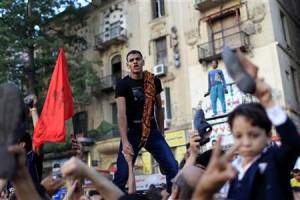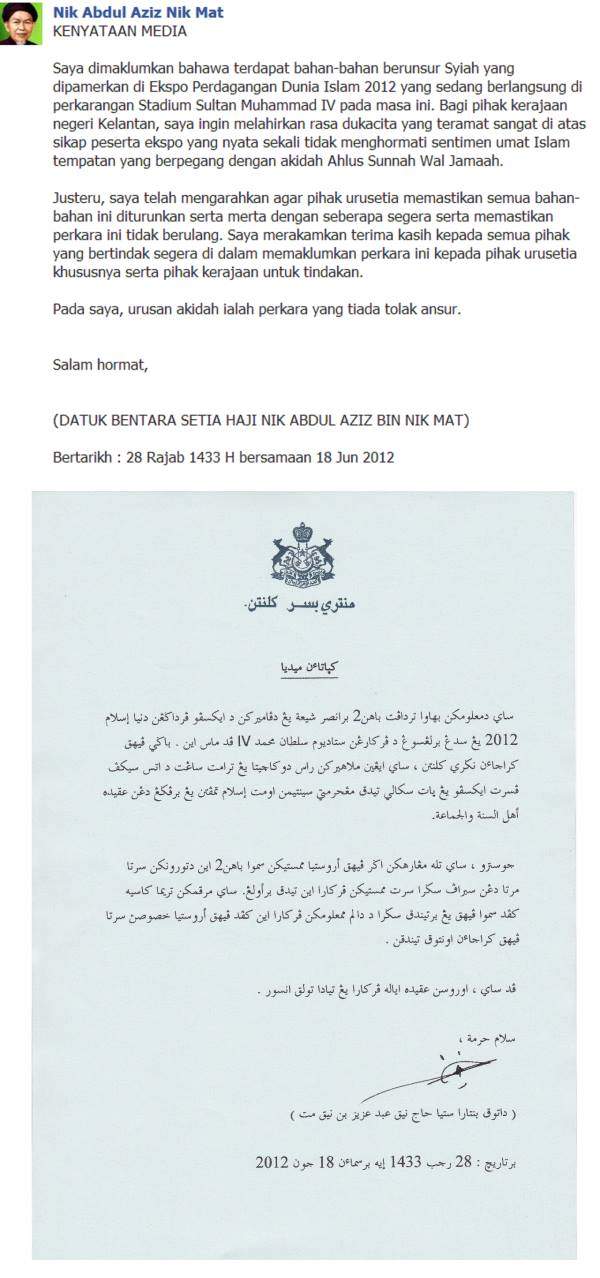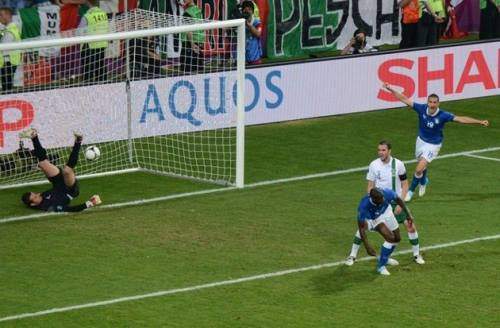Published by AIDC on June 17, 2012
Abu Zain, Kajang – Pentagon telah menipu proksi mereka al-Ikhwan al-Muslimoon di Mesir! Pada minggu lepas 15 Jun 2012, Mahkamah Tinggi Mesir telah membubarkan Parlimen!. Perlembagaan sementara akan ditukar juga untuk menjadi pro kuasa sebalik tabir di Militari Kompleks Pentagon.
Pas dan PKR perlu ambil ikhtibar daripada apa yang terjadi di Mesir. Bersatulah. Negara akan terselamat, Rakyat akan terbela.
Egypt uprising ‘overturned‘
 Court ruling to dissolve parliament leads Brotherhood to warn of “dangerous days” such as those under Mubarak regime.
Court ruling to dissolve parliament leads Brotherhood to warn of “dangerous days” such as those under Mubarak regime.
Evan Hill Last Modified: 15 Jun 2012 13:49
Egypt’s Muslim Brotherhood has warned that a court ruling to dissolve parliament and let Hosni Mubarak’s former prime minister run for president is a move toward reversing the gains of last year’s revolution.
The group, which held the most seats in parliament, said in a statement on Friday that the decision will lead to more dangerous days than those under the Mubarak government.
The Brotherhood statement said progress made since Mubarak was ousted is being “wiped out and overturned”.
“Back to where you were,” read a huge red headline in the Friday edition of independent daily Al-Shorouk.
Egypt’s Supreme Constitutional Court ruled on Thursday in two unprecedented same-day decisions that the Muslim Brotherhood-dominated parliament must be dissolved and that former officials in the previous Mubarak government be allowed to hold political office.
The rulings were a harsh blow to the Brotherhood and effectively approved the candidacy of presidential hopeful and former prime minister Ahmed Shafik.
The verdicts were quickly followed by an announcement that Egypt’s ruling Supreme Council of the Armed Forces (SCAF) would now oversee the writing of a new constitution.
Mohammed el-Beltagy, the vice-president of the Muslim Brotherhood’s Freedom and Justice Party (FJP), called the sequence of events a “fully fledged coup” in a post on his Facebook page.
But Mohammed Morsi, the Muslim Brotherhood’s presidential candidate, said in an interview with Egyptian channel Dream 2 that the constitutional court’s decision to dismiss the entire parliament did not amount to a military coup.
“I love the military forces,” he said, adding that the court rulings indicated “there [are] some who seek, strive for, and plan ill against the people”.
There are signs from the Brotherhood and the Salafi Nour Party, the legislature’s other main power broker, that parliament may refuse to dissolve itself.
No authority
Deputy speaker and Nour MP Ashraf Thabet told local media on Thursday night that parliament would continue with its usual session on Tuesday.
Last week, Saad el-Katatni, an FJP member and speaker of parliament, said that Egypt’s interim constitution gave no institution the authority to dissolve parliament.
At issue in the rulings on Thursday was the way in which the People’s Assembly was elected, which involved a hybrid ballot, two-thirds of which was meant for political parties and one-third for independents.
The Brotherhood pushed the military to change the rules at the last moment, opening the independent seats for parties, and hemming in the right of former regime elites to run for election.
That push now seems to have backfired, with the court ruling that the change to the hybrid system unfairly discriminated against independents.
Although Egypt’s judiciary was long respected as a bulwark of independence, and one of the only checks on the Mubarak government, analysts say the court was stacked with Mubarak sympathisers in recent years.
Many viewed the Supreme Constitutional Court’s decision on Thursday as deeply political.
On the three previous occasions the court has dissolved parliament, it never made such a speedy same-day ruling, sometimes taking years to decide, wrote legal scholar Nathan Brown, an expert of the Egyptian judiciary at George Washington University.
Exacerbating the perception were remarks made last week by Ahmed el-Zend, the head of the Judges Club, who declared that judges would not have overseen elections if they had known the kind of representatives who were going to win.
Ruling ‘legal’
The Brotherhood’s success in pushing through what was known as the Political Isolation Law was also reversed on Thursday.
The law, passed by parliament and approved by SCAF in April, banned Shafik and others who had held high-level positions in Mubarak’s government from holding office for the next decade.
Shafik continued to run after the presidential election commission, filled with some of the same judges who sit on the Supreme Constitutional Court, decided to allow him in. The court has now officially approved that decision.
The ruling, analysts agree, is legal, since the law was poorly tailored to target only a select group of individuals.
But the way in which it was reached, with conflicts of interest and last-second timing, make the court appear to be on the side of the military and the state.
‘Historic verdict’
When state television announced that the court had decided to allow Shafik to stay in the race while also dissolving parliament, word spread through the crowd, who were reading Twitter and receiving text messages.
Some protesters surged toward the barbed wire, and a military armoured personnel carrier and two Central Security Force armoured vans moved into position on the other side.
The crowd soon thinned, however, leaving a few dozen people shouting at the police on the other side and leading anti-military chants.
Hours later, Shafik held a triumphant press conference and declared that the era of “tailoring laws” had ended.
He promised a civil state and return of stability.
“The message of this historic verdict is that the era of political score settling has ended,” Shafik told supporters.
“I’m not surprised,” said 18-year-old Mohammed Maher, an engineering student at Helwan University who had carried a revolutionary socialists flag to the court protest.
“But I think all the judges they don’t rule from their heads, they rule from the head of the army.”
Maher said everyone expected the judiciary to rule in favour of the establishment.
“The son of a rich man becomes rich and the son of a poor man stays poor,” he said.









